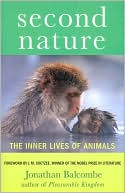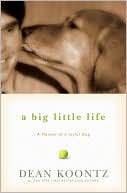Second Nature: The Inner Lives of Animals
Search in google:
For centuries we believed that humans were the only ones that mattered. The idea that animals had feelings was either dismissed or considered heresy. Today, that’s all changing. New scientific studies of animal behavior reveal perceptions, intelligences, awareness and social skills that would have been deemed fantasy a generation ago. The implications make our troubled relationship to animals one of the most pressing moral issues of our time.Jonathan Balcombe, animal behaviorist and author of the critically acclaimed Pleasurable Kingdom, draws on the latest research, observational studies and personal anecdotes to reveal the full gamut of animal experience—from emotions, to problem solving, to moral judgment. Balcombe challenges the widely held idea that nature is red in tooth and claw, highlighting animal traits we have disregarded until now: their nuanced understanding of social dynamics, their consideration for others, and their strong tendency to avoid violent conflict. Did you know that dogs recognize unfairness and that rats practice random acts of kindness? Did you know that chimpanzees can trounce humans in short-term memory games? Or that fishes distinguish good guys from cheaters, and that birds are susceptible to mood swings such as depression and optimism?With vivid stories and entertaining anecdotes, Balcombe gives the human pedestal a strong shake while opening the door into the inner lives of the animals themselves. Publishers Weekly Who knew that chickens and humans find the same faces beautiful? Or that fish choose reliable partners for “dangerous predator inspection missions?” Referencing such intriguing studies, Balcombe (Pleasurable Kingdom) builds a compelling case for blurring the line between animal and human perception, thereby questioning the prevailing scientific orthodoxy that humans alone possess the ability to reason. Over the years, studies have shown that animals have intelligence (dolphins have been known to teach themselves to delay gratification to get extra treats), emotions (like humans, baboon mothers show elevated levels of glucocorticoids after losing an infant), cunning (gorillas divert the attention of rivals from food, often by grooming); that they can communicate (nuthatches can translate chickadee chirps), can be altruistic (chimps who know how to unlatch a door help those who can't). Yet philosophers have routinely dismissed animals as unthinking, unfeeling beasts—Descartes grouped non-human animals with “machines,” a line of logic that has been used to justify callous treatment of laboratory animals. Balcombe's brief, marred only slightly by sermonizing, builds to a passionate and persuasive argument for vegetarianism on both humanitarian and environmental grounds. (Mar.)
Foreword J. M. Coetzee Coetzee, J. M.Pt. I Experience1 Introduction 72 Tuning In: Animal Sensitivity 153 Getting It: Intelligence 314 With Feeling: Emotions 455 Knowing It: Awareness 61Pt. II Coexistence6 Communicating 837 Getting Along: Sociability 1038 Being Nice: Virtue 121Pt. III Emergence9 Rethinking Cruel Nature 14310 Homo Fallible 16311 The New Humanity 185Notes 205Index 231








